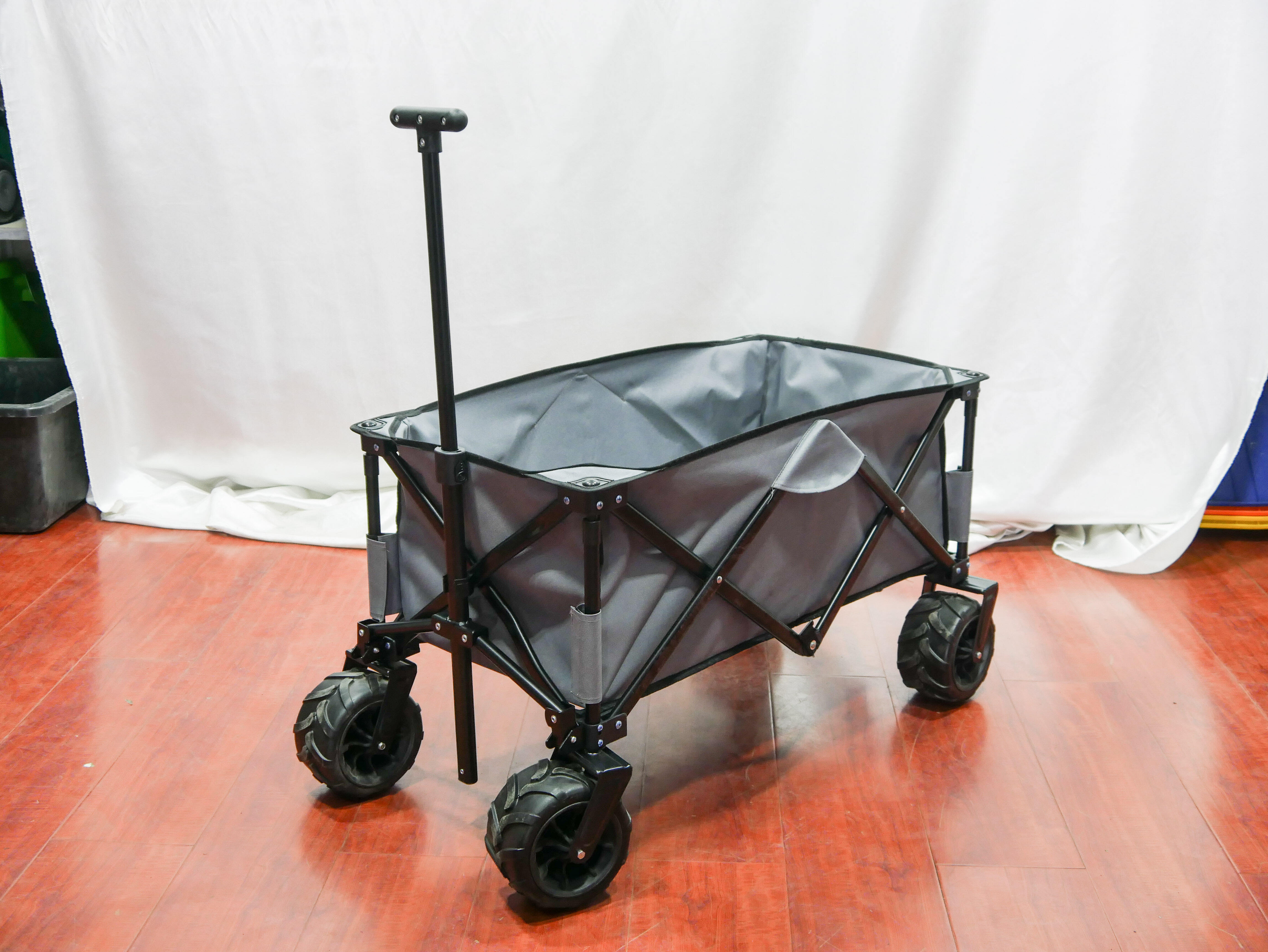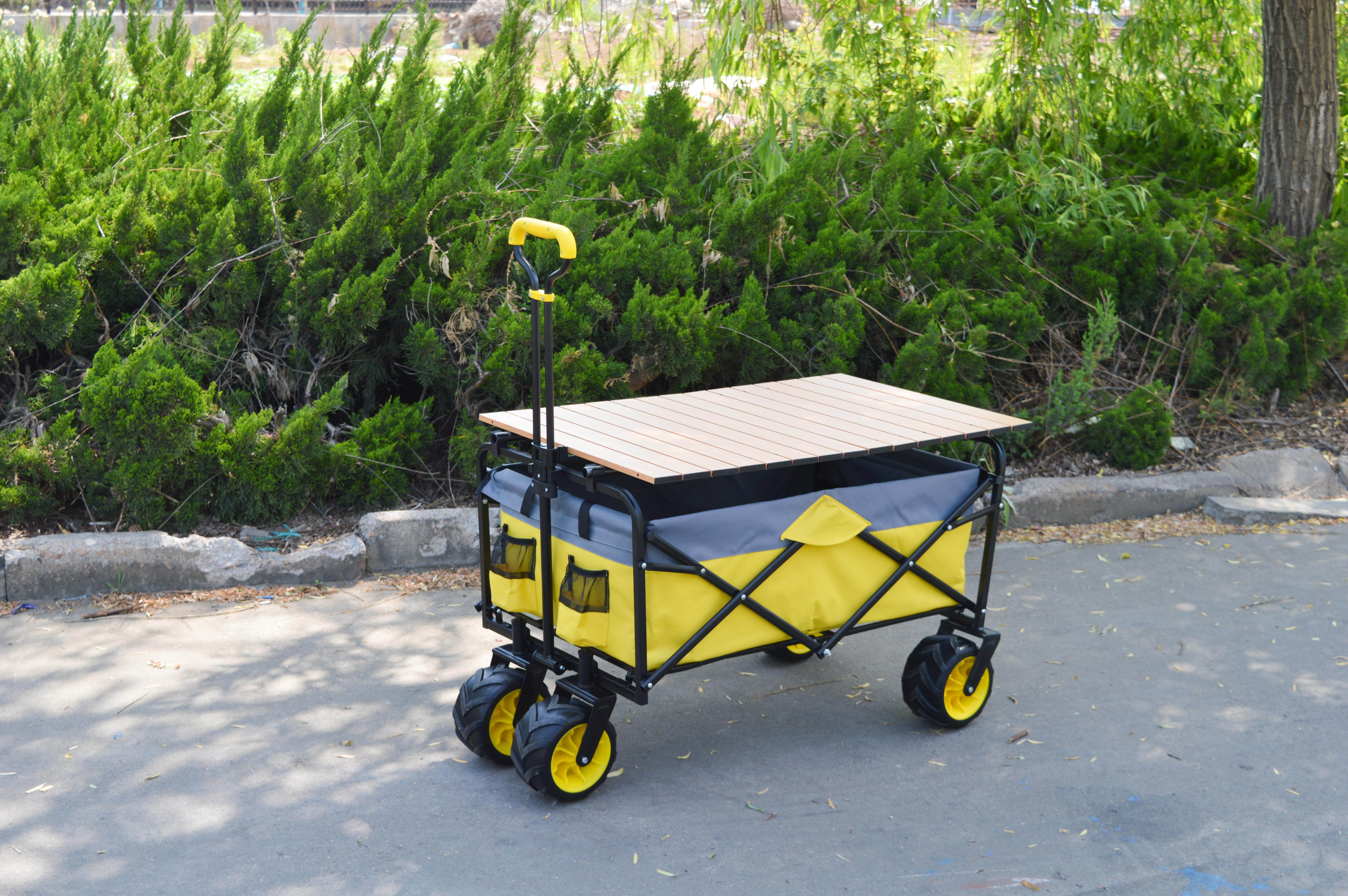Revolutionizing Beach Transport: The Economic Impact of Flat-Free Solutions
Coastal resorts and beach facilities face an ongoing challenge with their equipment maintenance, particularly when it comes to beach wagons that transport gear, supplies, and guest amenities across challenging sandy terrain. Traditional pneumatic wheels often succumb to the harsh coastal environment, leading to frequent replacements and escalating maintenance costs. The introduction of flat-free beach wagon technology has sparked significant interest among property managers looking to optimize their operational expenses.
The demanding nature of beach operations requires durable, reliable equipment that can withstand constant exposure to sand, salt water, and intense sun. When traditional wheels fail, it not only disrupts service but also impacts the bottom line through replacement costs and downtime. Understanding how flat-free beach wagon technology affects long-term operational expenses is crucial for resort management decisions.

Understanding Flat-Free Technology for Beach Applications
Advanced Materials and Construction
Modern flat-free beach wagon wheels utilize sophisticated polymer compounds specifically engineered for coastal environments. These materials resist UV degradation, salt corrosion, and mechanical stress from repeated impact with sand particles. The solid construction eliminates the risk of punctures while maintaining the necessary flexibility for smooth operation over various beach terrains.
The core structure of these wheels often incorporates reinforced microcellular technology, providing optimal weight distribution and shock absorption without the maintenance requirements of air-filled alternatives. This advanced construction ensures consistent performance regardless of temperature fluctuations or extended exposure to harsh elements.
Performance Characteristics
Flat-free beach wagons demonstrate superior handling characteristics compared to traditional pneumatic wheels. The specialized tread patterns are designed to prevent sand accumulation while providing excellent traction on both wet and dry surfaces. The consistent shape retention ensures predictable performance throughout the wheel's lifetime, contributing to improved safety and operational efficiency.
Load-bearing capacity remains stable over time, unlike air-filled tires that can lose pressure and compromise performance. This reliability is particularly valuable during peak season when equipment downtime can significantly impact guest services and staff productivity.
Financial Analysis of Wheel Replacement Cycles
Traditional Wheel Replacement Patterns
Conventional beach wagons with pneumatic tires typically require replacement every 3-6 months due to wear, punctures, and environmental damage. This frequent replacement cycle creates substantial recurring costs, including not only the expense of new wheels but also labor costs for maintenance and potential revenue loss during equipment downtime.
Seasonal variations in usage intensity further complicate the replacement schedule, with peak tourist periods often accelerating wear and creating unpredictable maintenance demands. Resort managers must maintain larger inventory buffers to prevent service interruptions, tying up capital in spare parts.
Long-term Cost Comparison
Initial investment in flat-free beach wagon technology may be higher than traditional options, but the extended service life provides significant long-term savings. Quality flat-free wheels can last multiple seasons without replacement, effectively reducing the total cost of ownership by eliminating regular replacement cycles.
When factoring in reduced maintenance hours, decreased inventory requirements, and improved operational reliability, the financial advantages become even more apparent. Resorts implementing flat-free solutions report maintenance cost reductions of up to 70% over traditional wheel systems.
Operational Benefits Beyond Cost Savings
Enhanced Guest Experience
Reliable beach transportation equipment directly impacts guest satisfaction. Flat-free beach wagons ensure consistent service availability, eliminating disruptions caused by wheel failures. The smooth operation and reduced noise levels contribute to a more pleasant beach environment, enhancing the overall resort experience.
Staff can focus on guest service rather than equipment maintenance, leading to improved interaction quality and higher satisfaction ratings. The professional appearance of well-maintained equipment also contributes to the resort's premium image.
Environmental Considerations
The extended lifespan of flat-free wheels reduces waste generation and environmental impact. Fewer replacement cycles mean less material disposal and reduced manufacturing demand. This aligns with growing guest expectations for environmentally responsible business practices and can enhance a resort's sustainability credentials.
Additionally, the absence of chemical lubricants and reduced maintenance requirements minimize the risk of environmental contamination, supporting beach ecosystem preservation efforts.
Implementation Strategies for Resort Operations
Transition Planning
Successfully integrating flat-free beach wagons requires careful planning and phased implementation. Resort managers should consider seasonal timing, budget cycles, and operational demands when scheduling equipment upgrades. A pilot program with a limited number of units can help validate performance benefits and refine maintenance protocols.
Staff training on proper usage and basic maintenance ensures maximum benefit from the investment. Documentation of performance metrics and cost savings helps justify broader implementation across the property.
Maintenance Protocol Updates
While flat-free wheels require less frequent maintenance, establishing regular inspection routines remains important. Simple cleaning procedures and periodic checks for wear patterns help maximize service life and maintain optimal performance. Updated maintenance schedules should reflect the reduced intervention requirements while ensuring proper equipment care.
Implementing a tracking system for usage patterns and performance metrics enables data-driven decisions about future equipment investments and maintenance scheduling.
Frequently Asked Questions
How long do flat-free beach wagon wheels typically last?
High-quality flat-free beach wagon wheels can last multiple seasons, typically 2-3 years under normal resort usage conditions. This represents a significant improvement over traditional pneumatic wheels that may require replacement every few months.
What maintenance is required for flat-free beach wagons?
Maintenance requirements are minimal, primarily consisting of regular cleaning to remove sand and salt residue, visual inspection for wear patterns, and occasional checking of mounting hardware. No inflation or pressure monitoring is needed.
Can flat-free wheels handle the same loads as pneumatic tires?
Modern flat-free wheels are engineered to match or exceed the load-bearing capacity of traditional pneumatic tires. Many models offer enhanced weight distribution and stability, particularly important for beach terrain.
Are flat-free beach wagons worth the higher initial investment?
The higher upfront cost is typically offset within the first year through reduced maintenance expenses, eliminated replacement costs, and improved operational efficiency. Long-term savings and enhanced reliability make them a cost-effective choice for resort operations.

 EN
EN
 AR
AR
 BG
BG
 HR
HR
 CS
CS
 DA
DA
 NL
NL
 FI
FI
 FR
FR
 DE
DE
 HI
HI
 IT
IT
 JA
JA
 KO
KO
 NO
NO
 PL
PL
 PT
PT
 RO
RO
 RU
RU
 ES
ES
 SV
SV
 TL
TL
 IW
IW
 ID
ID
 LV
LV
 LT
LT
 SR
SR
 SK
SK
 VI
VI
 ET
ET
 HU
HU
 TH
TH
 TR
TR
 AF
AF
 MS
MS
 LO
LO
 LA
LA
 MR
MR


